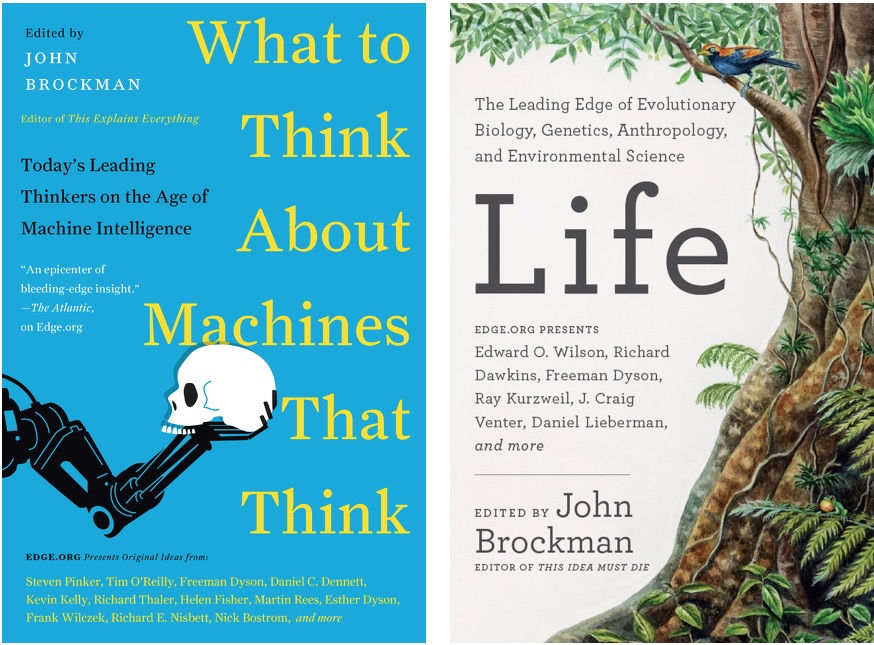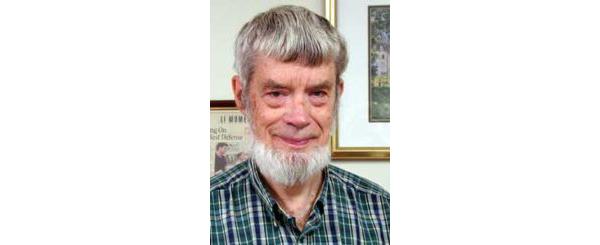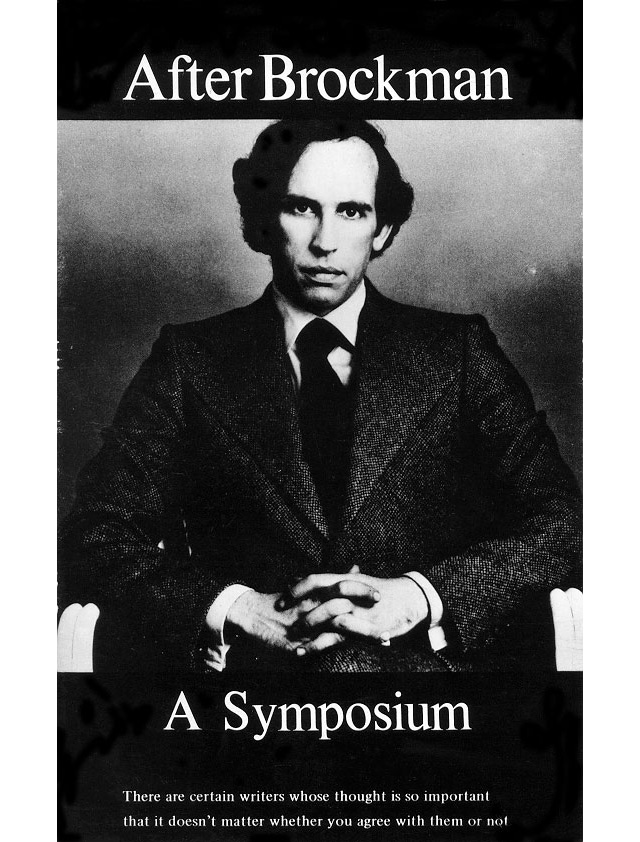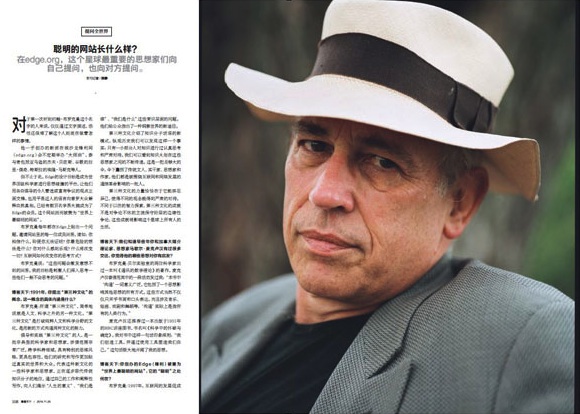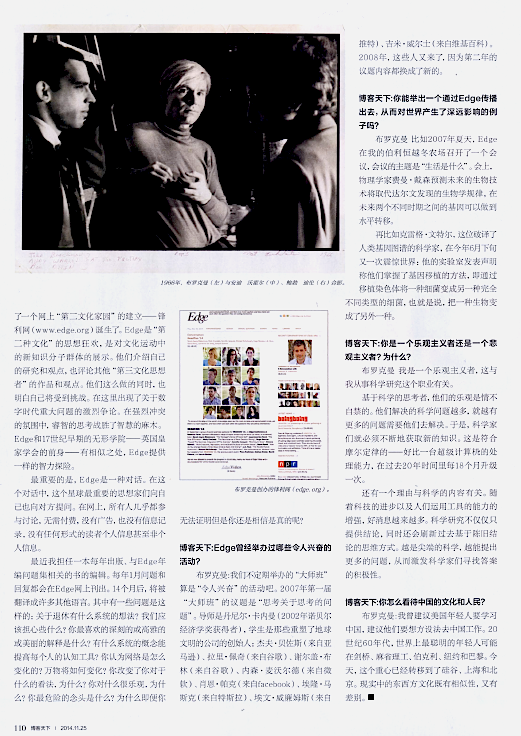SELECTED CONTENTS
The San Francisco Review of Books—Cover Story
by Jay Bail
There are certain writers whose thought is so important that it doesn't matter whether you agree with them or not. A verbal tension so powerful, an ascetic appetite so huge and consuming forces us both to accept the vision as a revelation and to resist it as a duty. ...
For John Brockman is the kind of writer you both agree with and don't agree with at all. Either way you must pay a pro-found attention to what he says in this remarkable book. In short, sharp strokes of words, he breaks through the very for-est of meaning by denying meaning, eschewing traditional forms of activities, thoughts and emotions. It is not what he says that is so valuable; it is his whole manner of negating what can be said. His words backtrack on themselves, stalk their own meanings, and thrash about in the underbrush of our sensibilities. There is a total devastation of language, isolating and withering the very hands our dreams are made of.
[Continue Below]
‡
Afterwords undo themselves, including their precursors. Post-Wittgensteinean epistomologists first wrestled with, and are now slowly beginning to understand, the last proposition (No. 7) of Wittgenstein's Tractatus Logico Philosophicus: "Of which we cannot speak we have to remain silent". Brockman understands. Afterwords silence themselves. His last proposition (No. 292) is: "Nobody knows, and you can't find out". ...
Afterwords takes the mystery of language and puts it right back into its own mystery; that is, Afterwords ex-plains the mystery of language by taking language out ("ex-") of the plane of its mystery, so as to become visible to all before it slips back in to its plane. This in itself is a remarkable achievement that has been denied to almost all linguists, for they stick to the description of the plane without seeing that it is the plane that holds their descriptions.
[Continue Below]
‡
My debt to John Brockman is great: he taught me the essential non-existence of the screen of words. By defining, with words, the non-existence of definitions, the experience without words becomes the highest value in the hierarchy. The injunctive use of words (as in a cookbook) pointing to experience yet to be had is the only worthwhile residuum of "filmiest of screens separating ordinary reality from the non-ordinary realities inside one's inner spaces.
[Continue Below]
‡
What distinguishes this trilogy is not their informing hypotheses, which are familiar to various degrees, but the author's unfettered exploration of their implications.
[Continue Below]
‡
Brockman's Afterwords is the first comprehensive post-modern Primer, the only book to date which extends a guiding hand back through Modernism to the Pre-Modern where most "intellectuals" still live. Afterwords represents a practical mode of updating into the NOW. It is a book for meditation, carrying back into the cloisters and chewing on them until the cloisters themselves disappear.
[Continue Below]
‡
Are not we physicists still bombarding the spaces between the subdivisions of identifiable matter with gigantic electron accelerators? Hoping to get through?...
Brockman, alone on the other side, in that quiet there, quiet because he is the only one there, can hope the rest of us may yet make it.
[Continue Below]
‡
John Brockman's work is the newspaper of consciousness. It is frankly, enormously important on a number of different levels. I shall try to make some of these clear in this article.
[Continue Below]
‡
[Brockman] is fact's razor, cutting away everything — everything — knowledge, meaning, emotion, that we have let grow around us to keep out the cold of nothingness. If he follows his own lines, there is nothing left for him to say, but like Beckett, I suppose he will go on writing. Ideally, as in Zen, his ideas would be demonstrated, but unspoken. It won't be difficult for future critics to find his weak spots- the attention-getting anger, the simplistic generalizations which sometimes dominate a page—but I doubt that anyone who reads him with understanding will be able to escape his thinking.
[Continue Below]

